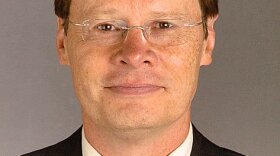After years of debate and relentless partisan battles, the impact of the Affordable Care Act – also known as Obamacare – is starting to become clear. According to reports released last week by the Gallup polling company, the Commonwealth Fund and the Urban Institute, there has been a dramatic reduction in the number of uninsured.
Gallup found that the uninsured rate in the U.S. fell an additional 2.2 percentage points to 13.4%. This is the lowest quarterly average recorded since 2008.
That translates into a significant impact on the number of uninsured. Nationwide, roughly 1 in 4 people who were uninsured last fall now have received coverage, which translates into a whopping 11 million Americans. In New York State, almost 1 million have received coverage as the result of the federal health care reform law.
Gallup's research showed that the uninsured rate dropped by about three points from the fourth quarter of 2013 among each major age group under 65. The uninsured rate now averages about 18% among 18- to 25-year-olds, 24% among 26- to 34-year-olds, and 13% among 35- to 64-year-olds. Nationally, adults younger than 35 have accounted for the sharpest increase in coverage.
There have been some criticisms of the federal law about smaller provider networks and confusion over which doctors and hospitals are available. But the Commonwealth study found that more than three-quarters of those who had either enrolled in Medicaid or bought a private insurance plan in the new marketplaces reported that they were either "very" or "somewhat" satisfied with their new coverage. Of course, coverage is better than no coverage, but at least most newly enrolled Americans are comfortable with their plans.
Much of the remaining uninsured Americans increasingly are concentrated in states that have declined to expand Medicaid — the insurance program for the poor. Those states are primarily found in the South and Midwest and have with Republican-controlled governments that have been hostile to the new law and, in many cases, have tried to impede its implementation. That political resistance could be a major factor in keeping uninsured Americans from getting coverage.
Moreover, despite extensive outreach efforts and considerable news coverage over the last year, many people still report being unaware of the new insurance marketplaces the law created. Even more did not know that the law provides financial aid to help people buy coverage.
Why the ignorance of the law? Well, those who have opposed the law have done everything possible from legitimate criticisms, to distortions, to outright lies, to build public resistance to the program.
Even after 4 years, Congressional opponents are still arguing that they want to “repeal and replace” the law. While it’s clear that they want to repeal it, they still offer no alternative. The only real alternative they offer is to tell those without health insurance that they are on their own and for those newly insured that they cannot keep their current health-saving coverage.
Too often, the toxic nature of American politics obscures the actual good that is being done. The Affordable Care Act was an attempt to develop a program to ensure near-universal health insurance coverage. But due to partisan politics, ideology, and greed, the debate over this worthy goal became less about substance and more about keeping the President from having a policy victory, no matter what the consequences to real people.
As Americans, we can’t fall into those traps. The question before the nation was – should Americans have health insurance coverage? The Obama Administration answered yes. And while there was, and is, a legitimate debate to be had over whether this approach will work, attacking the effort while offering no alternative is not only cynical, but cruel to those in need.
Politics can be vicious, but where Americans should draw the line is when partisan advantage is at the expense of people’s well-being. Thankfully for the 1 million New Yorkers who obtained coverage, and for the 10 million in other states, that partisan fight has not kept them from getting protection. Hopefully, for the tens of millions that still need help, the future will offer them health coverage.
Blair Horner is the Legislative Director of the New York Public Interest Research Group.
The views expressed by commentators are solely those of the authors. They do not necessarily reflect the views of this station or its management.



